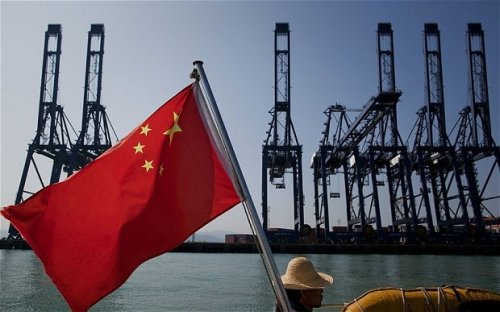
The Malaysian Reserve - 31 July 2019
China pushes more bilateral investment with Malaysia
By Shaheera Aznam Shah
THERE will be more investments in the finance and high-value agriculture sectors to Malaysia from China as part of its Belt and Road Initiative (BRI).
“China is willing to discuss with Malaysia on enhancing cooperation in fields such as finance and high-value agriculture, and tap our cooperation potential of new industries and new forms of business, such as e-commerce, artificial intelligence and high-tech, building new ‘growth points’ for our bilateral cooperation,” Chinese Ambassador to Malaysia Bai Tian said in his speech at the China-Malaysia Forum on People-to-People Exchange and Economic Cooperation in Kuala Lumpur.
“China is also willing to enhance bilateral trade connectivity as we welcome more Malaysian products to compete in the Chinese market and encourage the best Chinese companies to invest in Malaysia,” he added.
The ambassador said the projects that are linked to the BRI, such as the One Belt One Road project, will implement common rules that receive consensus from global economies to ensure the sustainability of the BRI’s social and fiscal condition.
“We will push enterprises to integrate with widely-accepted rules from the international community, including construction projects, business operations and procurement, as well as public biddings to ensure the social, fiscal and environmental sustainability of the BRI.
“We believe these goals and objectives will make the BRI’s cooperation smoother and stronger, and that it will bring more tangible benefits to all parties,” he said.
He added that China will be widening the cultural and knowledge exchanges with Malaysia in the areas of think tanks, exchanging media dialogue and sharing expertise in human resource training.
“We are seeing more exchanges between Chinese and Malaysian youth, media professionals and scholars.
“The Xiamen University Malaysia campus has already enrolled more than 3,000 students since 2016, of which 1,000 students are Malaysians,” he said.
To foster tourism ties between the two countries, Bai said the Chinese Culture Centre will be open in Malaysia at the end of the year.
“We have seen in recent years that nearly three million Chinese tourists visit Malaysia annually. Next year, we will celebrate the Year of Tourism and Culture between China and Malaysia, in conjunction with Visit Malaysia 2020,” he said.
Meanwhile, in addressing the US-China trade conflict, Ministry of International Trade and Industry strategic planning division senior director John Patrick Anthonysamy said Malaysia urges both economies to seek an amicable solution to cease the conflict and consider its effects to smaller nations like Malaysia.
“A conducive environment and business-friendly engagement will prosper our economies and push us to greater heights.
“Therefore, under the spirit of cooperation and friendship, Malaysia would like to see China and the US work together in finding amicable solutions to end the trade conflict.
“We hope both economies take into account the ‘global responsibility’ and buffer the conflict impacts on smaller economies like Malaysia,” he said.
He added that the government will release the Fourth Industrial Master Plan (IMP4) next year, focusing on elevating Malaysia’s industrial activities.
“The IMP4 has been worked on by the ministry for a while, and it is going to be unveiled next year after the 12th Malaysia Plan is announced.
“In drafting the industrial direction for Malaysia, we have been collaborating with industry players who were able to help the countries lift the industrial activities,” he said.
The IMP3 was introduced in 2006 to improve and strengthen the competitiveness of the country’s three economic pillars — manufacturing, services and agriculture.